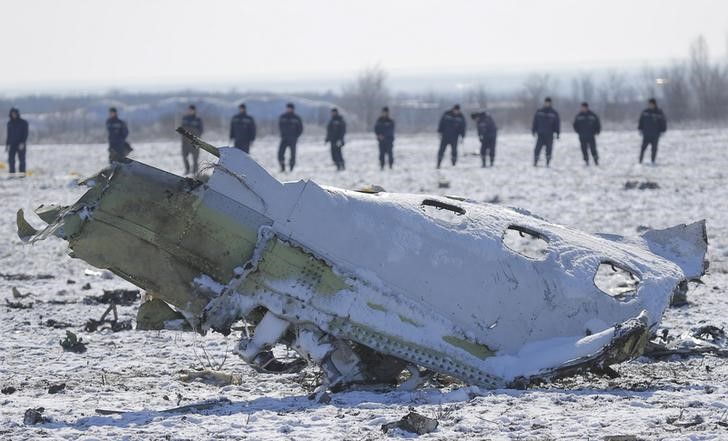DUBAI (Reuters) - Flydubai said on Thursday the safety and welfare of its crews were of primary importance following media reports of fatigue among its pilots, and advised against speculation over the circumstances of last week's deadly crash in Russia.
All 62 people on a Flydubai passenger jet out of Dubai were killed on Saturday when it crashed on its second attempt to land at Rostov-on-Don airport. The Dubai-based budget carrier has said in news conferences this week that it is waiting for the conclusion of Russian investigators to reveal the causes of the crash.
The BBC reported on Thursday that the captain of the jet, Aristos Sokratous, had resigned from the company - citing fatigue according to his colleagues -- and was serving out his three-month notice.
Russia Today reported this week on its website that the carrier's pilots work long hours and are under pressure.
Reuters was unable to independently confirm these reports, and attempts to contact a Sokratous family member via Facebook (NASDAQ:FB) for a general comment about the dead pilot were unsuccessful.
"We are unable to disclose confidential information relating to our employees," a Flydubai spokesperson said in a statement.
"It is important, not least out of respect for the families involved, that we do not speculate about the circumstances of this tragic accident, whilst the independent investigating authorities carry out their work," Flydubai added.
The United Nations' ICAO aviation agency requires member states to set maximum flight times and duty periods to ensure pilots stay alert and to have a system in place for managing fatigue.
Flydubai said it strictly followed flying duty time regulations in compiling rosters and the safety and welfare of flight and cabin crew were of primary importance.
"If a member of flight crew feels that, for whatever reason, they have not been able to get enough rest before starting a shift, our Safety Management Systems encourage pilots to declare themselves unfit to fly," the spokesperson said.
Russian investigators on Monday were trying to restore the jet's damaged cockpit voice recorder - which should shed crucial light on the pilots' final conversations - in an effort to understand why it tried to land in strong winds. That process could take weeks.
Russian media say the two main theories under consideration by investigators, who have opened a criminal investigation into the tragedy, are possible pilot error or technical failure.

Reuters was unable to verify this.